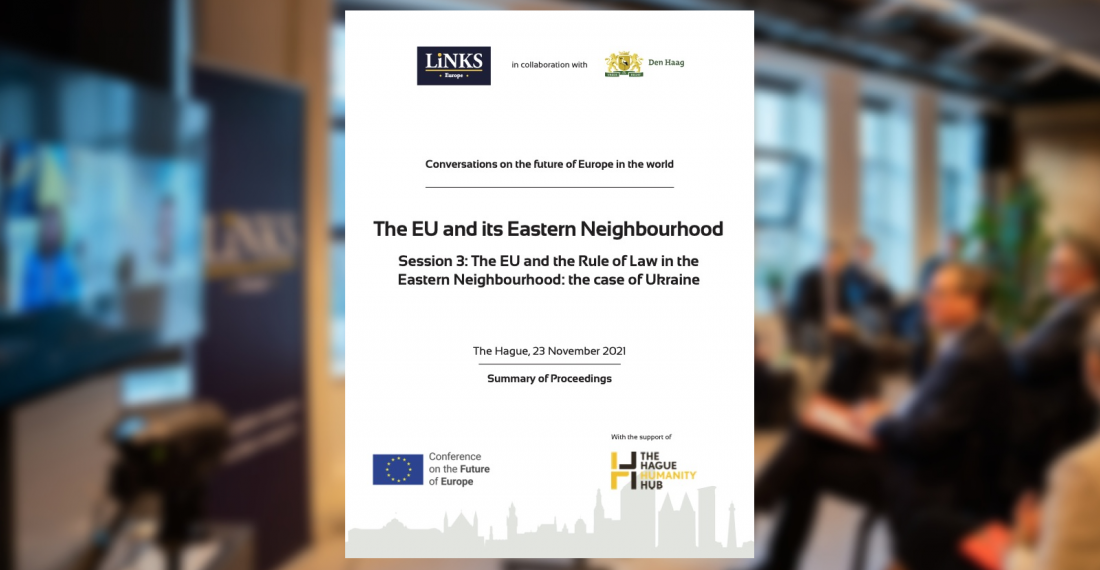The conference, “The EU and its Eastern Neighbourhood”, was held over three sessions at The Hague Humanity Hub in The Hague on Tuesday 23 November 2021. Nearly one hundred people participated in all or some of the three sessions, including Ambassadors accredited to the Netherlands, representatives of international organisations, journalists, academics, civil society representatives, students and concerned citizens. This event took place in the series 'Conversations on the future of Europe in the world' and was run in the process of the Conference on the Future of Europe.
The Chairman of the session, Ambassador (rtd) Robert Serry, who was the first Ambassador of the Netherlands to independent Ukraine, welcomed participants and introduced the topic of the session, ‘The EU and the Rule of Law in the Eastern Neighbourhood: the case of Ukraine’.
He said that it was important when talking about Ukraine to remember where the country had started from 30 years ago, and especially the dire situation in the field of rule of law then. He then gave the floor to the keynote speaker, Lydia Izovitova, the President of UNBA, who joined the meeting online from Kyiv. UNBA is at the forefront of the process to strengthen the rule of law in Ukraine and has recently celebrated the 9th anniversary of its founding.
After the intervention of Ms Izovitova, Ambassador Serry introduced the speakers on the panel: Brian Mefford, Non-resident Senior Fellow at The Atlantic Council and Founder and Director of the consultancy, Wooden Horse Strategies; Ivan Grechkivsky, Chair of the International Relations Committee at UNBA; Lino Brosius, Senior Programme Manager at the Center for International Legal Cooperation (CILC); and Dr Valentyn Gvozdiy, Vice President of UNBA.
Read the full summary here.






